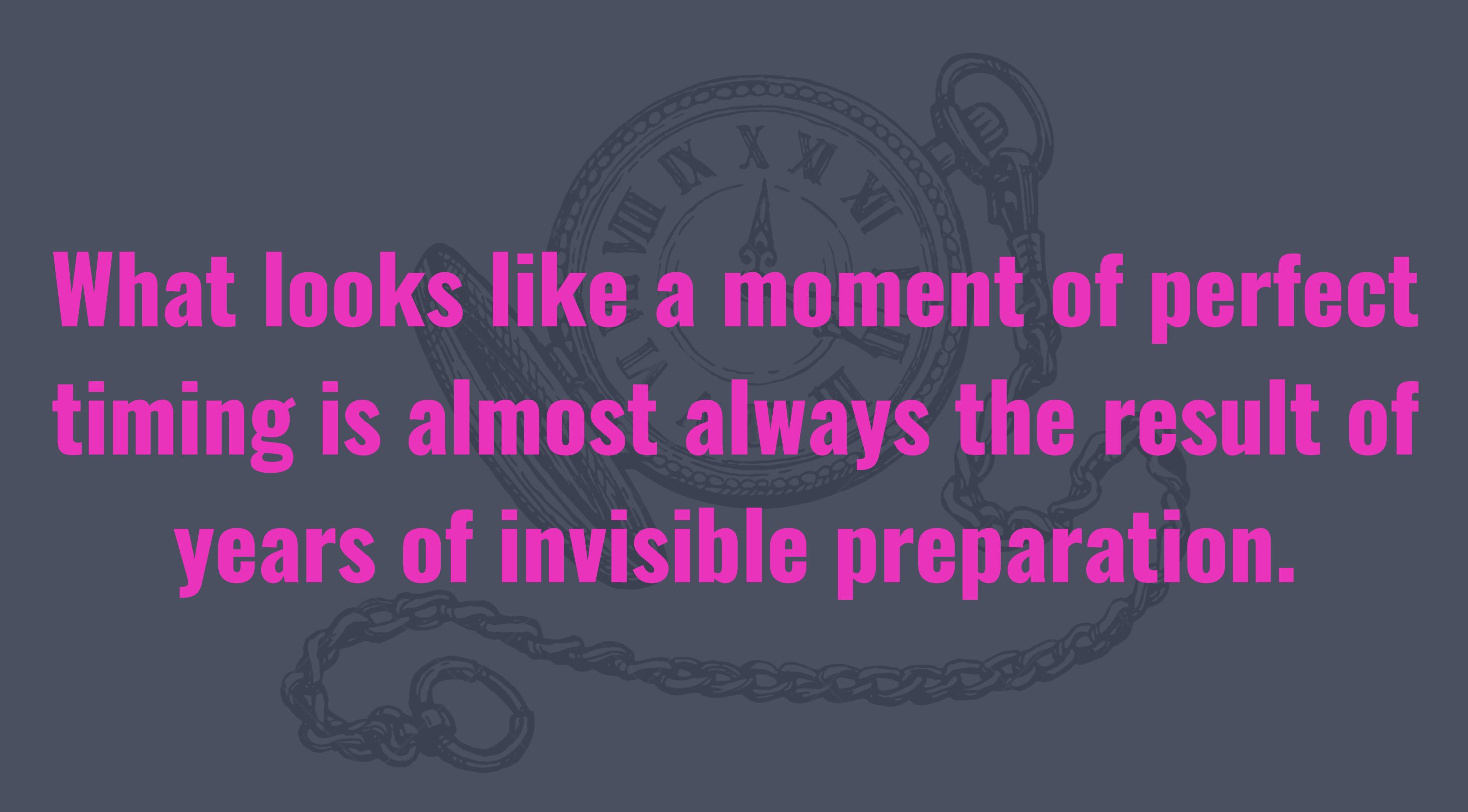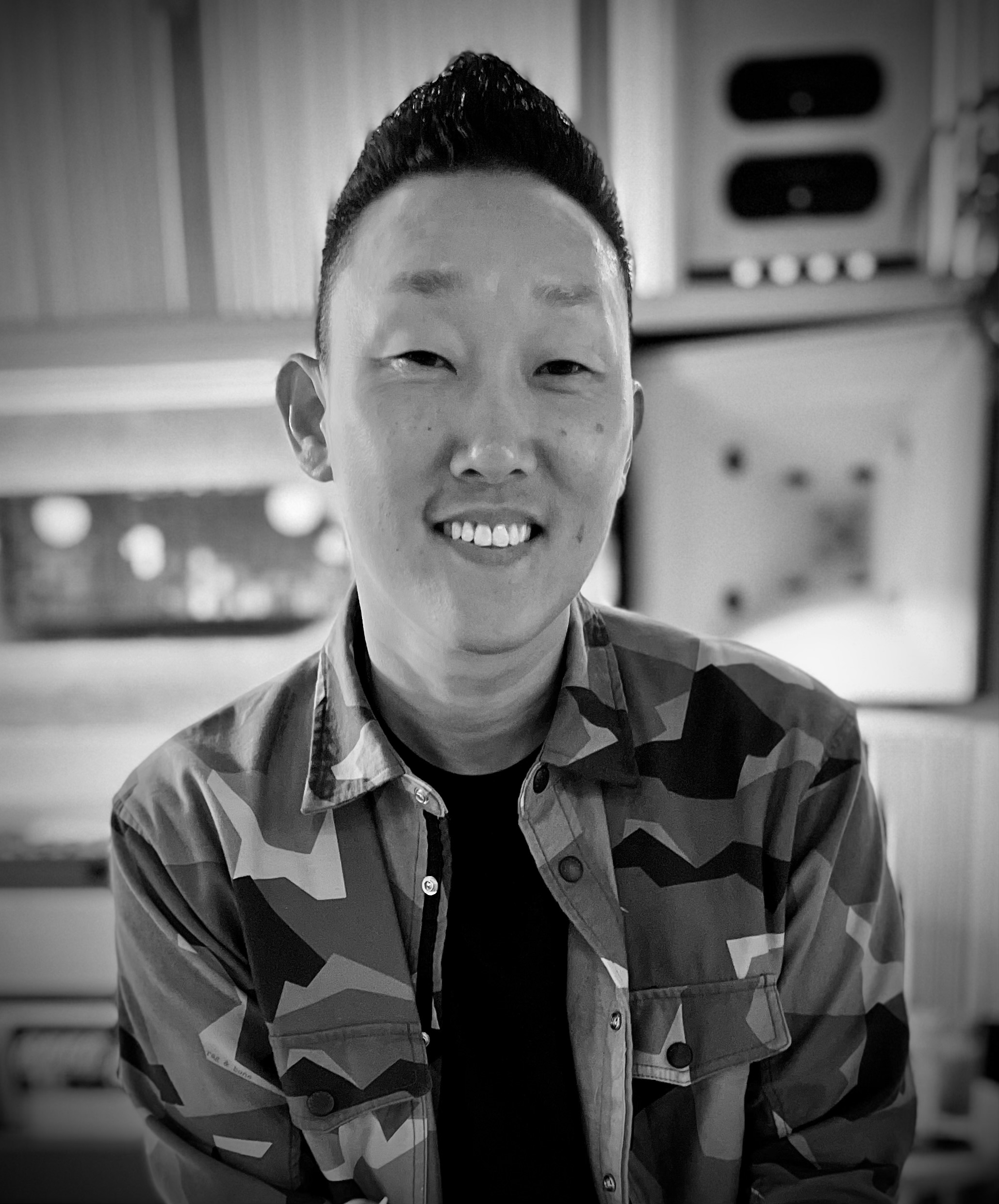Timing Isn't Everything
Oct 07, 2025Looking back over the course of my career, timing has often felt like it was working against me. One of my first careers was in real estate, and once I was doing enough business to become an equity partner in my company, the mortgage crisis hit. In 2019 I started my own business to design experiences for live events and things started off very well. Then COVID rolled through a year later and decimated the industry. Both times, the bottom seemed to fall out just as I was hitting my stride.
At the time of these events, it felt like terrible luck. I remember wondering if I had a knack for choosing the worst possible industries at the worst possible moments. But with distance, I can see it differently. Those crises clarified my commitment. They forced me to ask whether this was work I truly wanted to stay with.
I certainly wasn’t alone. Some of my friends stayed in real estate through the crash, and today they’re thriving. I stayed committed to events, and after years of uncertainty the industry has come roaring back. What once looked like “bad timing” was really just the test of whether I was willing to endure long enough for things to turn.
Which raises the larger question: what is timing? Is it coincidence or luck? Or is it, as some argue, something closer to a science?
Daniel Pink’s book When suggests that timing follows patterns we often overlook — daily rhythms, life stages, generational cycles. He makes the case that there are objectively better and worse moments to act, and offers practical advice to support it. For example, Pink points to research showing that our mood and energy levels rise in the morning, dip in the afternoon, and then rebound later in the day. He even cites studies showing that medical errors spike in the afternoon when doctors are fatigued, and standardized test scores are lower for students who take exams later in the day.
There’s definitely wisdom in this. Rhythms are real, but they don’t address the larger truth I’ve lived through. It’s the bigger timing questions: whether you’re in the right industry, whether the market is crashing, whether a pandemic shuts down your work, can’t be managed with charts or chronotypes. Those moments rarely arrive with clarity, they just arrive. And no amount of scheduling or planning could have told me whether it was the right time to be in real estate in 2008 or in events in 2020.

Business school taught me to think about external timing: market cycles, forecasts, the broader environment. But art and entrepreneurship taught me something more powerful: internal timing. The only real question is whether you are ready. If you wait for the world to give you permission, you’ll wait forever.
This is something artists understand well. Creativity often pulls us into the future, into ideas and visions that most people can’t see yet. To create is to live ahead of the curve. Which means that when we try to turn those ideas into businesses or careers, it can feel like bad timing, not because the work isn’t good, but because the rest of the world hasn’t caught up yet.
Robert Greene explores this idea in his book Mastery, which looks at how people across history, from scientists to artists to inventors achieved greatness. His point is that mastery doesn’t come from waiting for the perfect opportunity; it comes from years of sustained practice, experimentation, and the accumulation of skills. What looks like a moment of perfect timing is almost always the result of years of invisible preparation.
This idea reframes timing as something you build internally. The more skills you develop, the more perspectives you bring together, the more you’re quietly preparing yourself. You don’t have to know when the market will shift or when the world will be ready. You only have to know that you’ll be ready when it does.
So was my timing bad? Maybe. But if I’d walked away, I’d never know what was on the other side. The lesson I keep returning to is that the right time to begin is rarely clear in the moment. More often than not, it only becomes clear when you look back and realize you made it through.
Because in the end, external timing will always be uncertain. Internal timing, the moment you decide you’re ready to commit, is the only clock that matters.

